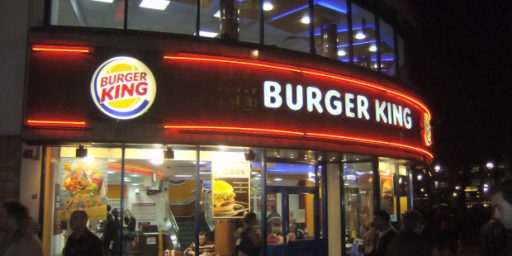Supreme Court Justice Nominations
My colleague Tom Traina is looking ahead to the fall and scoping out some potential Supreme Court nominees for both Obama and McCain. He also points out that, as kind of a nature of the beast, you can’t always predict what kind of Justice a nominee will turn into:
Frequently, the appointment of justices is an attempt to fix a current political problem that just winds up resulting in three more political problems over the next couple of decades. Perhaps there is no better example of this than Richard Nixon’s attempts to overturn the “liberal” Warren Court through the appointments of Justices Burger, Blackmun, Powell, and Rehnquist. Most of the hallmark opinions of the Warren Court are still good law today, and it was the Burger court that decided the controversial case Roe v. Wade. In this sense, Nixon’s appointments were a failure.
[…]
On the other side of the spectrum, liberal darling John F. Kennedy appointed Byron White to the Supreme Court. White was known for opposing the doctrine of substantive due process, specifically the idea of a right to privacy. He dissented from Roe v. Wade and argued, along with Justice Rehnquist, that Federal anti-discrimination laws did not prohibit private schools from segregating by race. As you may suspect, White is not considered a liberal darling.
I think that’s right and it’s always something to keep in mind when it comes to Supreme Court nominees. Personally, I’m pretty sure that I would not have strong opinions about either John McCain’s or Barack Obama’s nominees, so it’s not a particularly big difference to worry about when it comes to the candidates. Which is not to say its unimportant who they choose, it’s just that I am not sure it makes a difference from my own peculiar ideas of jurisprudence.





Granted that it’s not an exact science, Alex, but I suspect there’s something of a trend one might follow along these lines:
It’s far more likely for a nominee of a Democrat to turn into a Ruth Bader Ginsberg, than for the nominee of a Rebliblican to turn into an Antonin Scalia.
Indeed, it’s far more likely for the nominee of a Republican of late to turn into a David Souter, than into a Scalia.
As a result, I suggest at this stage, that no matter who gets elected President this cycle, chances are the court will tilt left of where it is.
And for the record, I do not regard that as a good thing.
Bithead,
I think that “left” and “right” don’t have a lot of meaning when it comes to the Supreme Court. For example, from a jurisprudential standpoint, Alito’s general theory of deference to the executive is pretty radical.
But, given that my jurisprudential sense lies closely to that of Randy Barnett’s (though I’m not quite as radically libertarian in my constitutional interpretation as he is), I’m not really that satisfied by any nominee.
That meshes with the last line in your post. I guess I was addressing more directly implications I saw in Traina’s quotes.